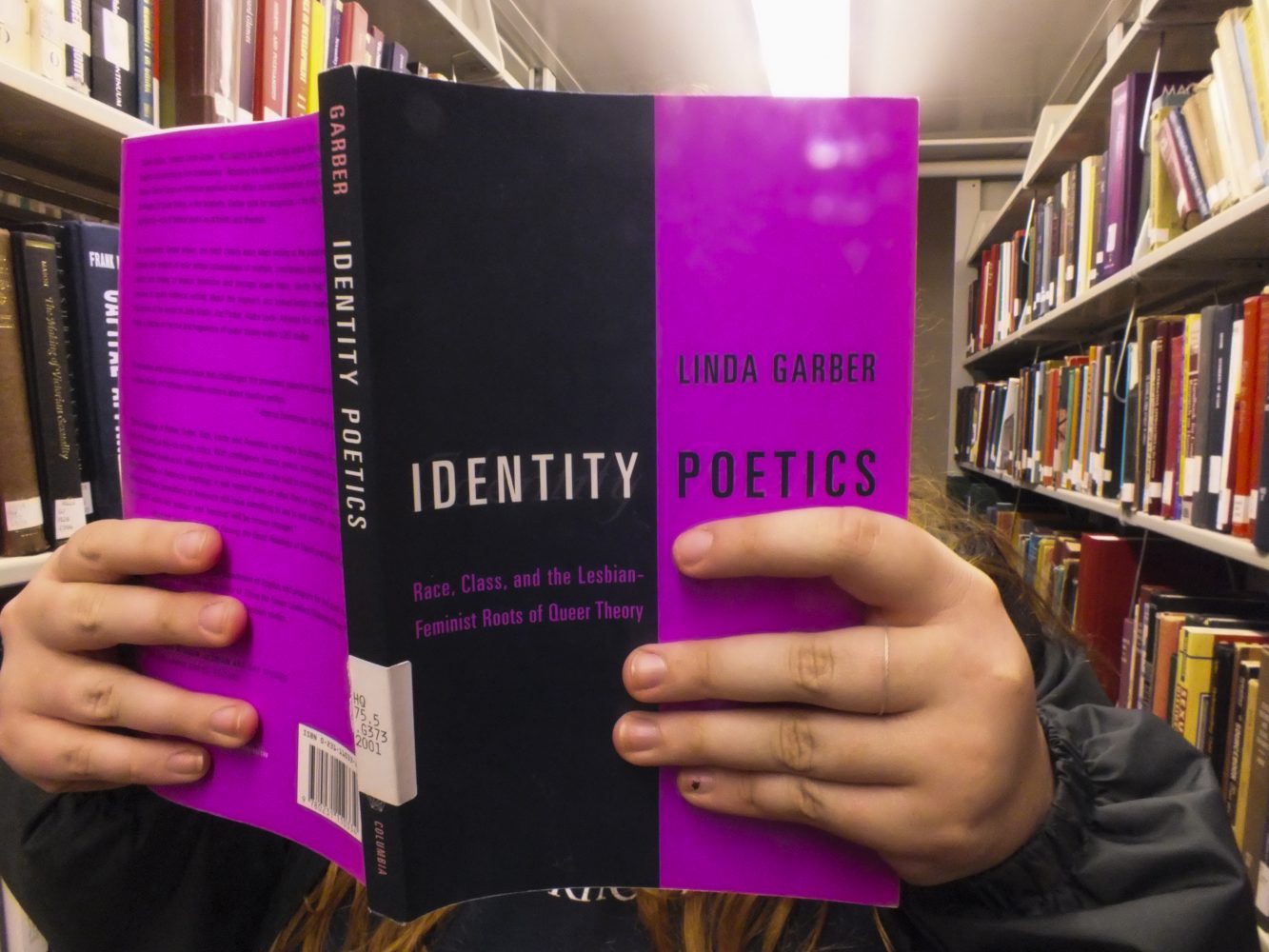Photo by Sarah Vincii |CIGAR|
After a two semester hiatus, the Gender and Sexuality Center is bringing back their well-loved book club program. Meetings are held monthly and all students are welcome to join in to discuss the assigned books in an open dialog that offers new ideas and different takes on popular LGBTQ literature.
GSC Advocacy Specialist, Rhianna Eleck, is a freshman psychology and gender and women’s studies double major who reinstituted the program and will be running the meetings. “I’m taking over a longstanding tradition that we used to have,” said Eleck.
Although the book club has not met in a while, however it used to be a very successful program facilitated by the GSC for years prior. The club will be each month, “reading a different novel and then meeting to discuss it.”
At the first meeting of the semester the current book was introduced and Eleck presented some open-ended questions with the intention of discussing at the next meeting in order to gain an understanding of students’ individual takes on the book and how they interpret the narrative it portrays.
“We just had a few people show up,” said Eleck. “So we didn’t have much to talk about other than introducing the book and the questions for thought.”
Students do not need to purchase any books for the club, they will be provided by the GSC at the meetings where they are introduced. “The free book was a big draw for someone I talked to when working our advertising booth,” said Eleck.
“We’re currently reading The Stranger’s Child by Alan Hollinghurst,” said Eleck. “It’s our first of the semester and this particular book focuses on a poet who left behind many poems after dying in World War I.”
“The novel is framed by people trying to figure out who the love poems were intended for,” Eleck said, “and they’re for his male partner.”
“Most of our books have something to do with the LGBTQ community,” Eleck said. “Primarily about discovering identity.”
“It’s nice to read a book that’s about you,” Eleck said. “It’s nice to be represented in literature.”
While much of coming-of-age literature caters to a cis, heterosexual demographic through straight, monogamous, romantic relationships, Eleck said, “Why can’t you have a book with a homosexual couple or someone who is struggling with their gender?”
The book club hopes to spark conversations on these topics and further the discussion on literary content that is relatable for the LGBTQ community. “It’s an open feedback kind of place,” Eleck said. “We want participation and for students to offer their own ideas on the books we read.”
The next meeting will be held Thursday, March 8, at 6 p.m., in the conference room of the GSC.
“We welcome as many people as we can get,” Eleck said. “After our discussion on The Stranger’s Child, we’ll be handing out and introducing our book for March.”





